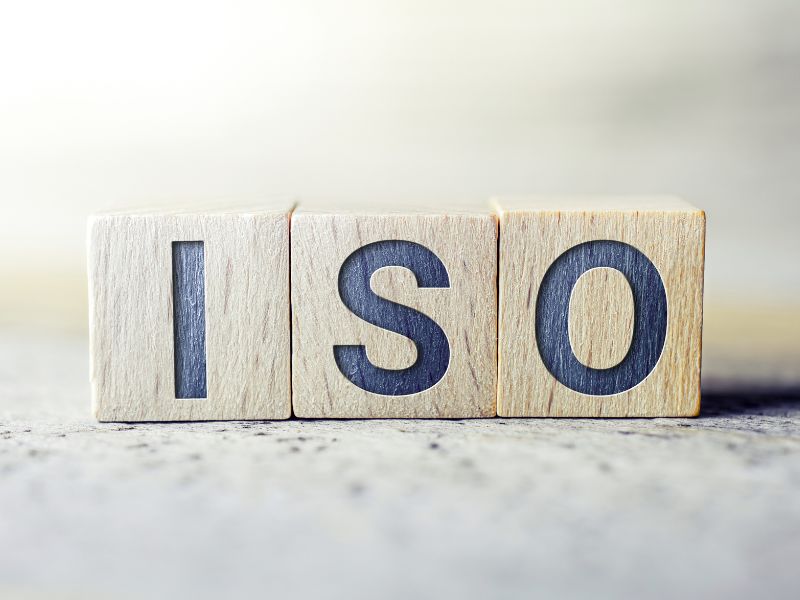ISO standards continue to evolve at an unprecedented pace, reshaping how organizations approach quality management, environmental responsibility, and operational excellence. As we advance through 2025, businesses face a complex landscape of regulatory changes, technological integration, and shifting market expectations that demand strategic adaptation.
This comprehensive analysis examines the most significant trends driving ISO standard development, explores upcoming revisions to critical certifications, and provides actionable strategies for organizations seeking to maintain competitive advantage through proactive compliance management.
Emerging Trends Shaping ISO Standards Development
Digital Transformation and Technology Integration
The rapid digitization of business processes has fundamentally altered how ISO standards address quality management and operational control. Organizations increasingly rely on artificial intelligence, machine learning, and automated systems to maintain compliance, prompting ISO technical committees to develop new frameworks that accommodate these technological advances.
Cloud-based quality management systems now enable real-time monitoring and continuous improvement processes that traditional paper-based approaches cannot match. ISO standards are evolving to recognize these digital capabilities while maintaining the rigorous oversight principles that ensure consistent quality outcomes.
Blockchain technology presents another frontier where ISO standards must adapt. The immutable nature of blockchain records offers unprecedented transparency in supply chain management and audit trails, requiring new evaluation criteria and verification methodologies.
Sustainability and Environmental Responsibility
Environmental consciousness has become a cornerstone of modern business strategy, driving significant changes in ISO 14001 and related environmental management standards. Organizations face increasing pressure from stakeholders, regulators, and consumers to demonstrate measurable environmental impact reduction.
The integration of circular economy principles into ISO standards represents a fundamental shift from traditional linear business models. New requirements emphasize resource efficiency, waste reduction, and sustainable product life-cycle management that extends beyond immediate operational boundaries.
Climate change considerations now permeate multiple ISO standards, not just environmental certifications. Risk management frameworks must account for climate-related disruptions, while business continuity standards incorporate extreme weather events and resource scarcity scenarios.
Cybersecurity and Information Security
The exponential growth in cyber threats has accelerated the development of comprehensive information security standards. ISO 27001 continues to expand its scope, addressing emerging vulnerabilities in cloud computing, Internet of Things devices, and remote work environments.
Organizations must now demonstrate robust cybersecurity governance that spans traditional IT infrastructure and operational technology systems. This convergence requires new competencies and integrated risk management approaches that many businesses are still developing.
Privacy regulations like GDPR have influenced ISO standards to incorporate data protection requirements more explicitly. The intersection of quality management and data privacy creates new compliance challenges that require specialized expertise and systematic approaches.
Upcoming Changes and Revisions to Key ISO Certifications
ISO 9001 Quality Management Systems
The next revision of ISO 9001 will likely emphasize digital quality management tools and data-driven decision making. Technical committees are evaluating how artificial intelligence and predictive analytics can enhance quality control processes while maintaining human oversight and accountability.
Risk-based thinking, introduced in the 2015 revision, will receive expanded treatment in upcoming updates. Organizations must demonstrate more sophisticated risk assessment capabilities that integrate operational, financial, and strategic considerations into quality management frameworks.
Customer experience management is gaining prominence as a quality metric, requiring organizations to develop new measurement systems and feedback mechanisms. The traditional focus on product conformity is expanding to encompass service delivery excellence and customer satisfaction outcomes.
ISO 14001 Environmental Management Systems
Significant revisions to ISO 14001 will address climate change adaptation and mitigation strategies more comprehensively. Organizations must demonstrate concrete action plans for reducing carbon footprints and achieving science-based emission reduction targets.
Biodiversity conservation requirements are being integrated into environmental management standards, reflecting growing recognition of ecosystem services and natural capital accounting. This expansion requires new assessment methodologies and monitoring systems.
Circular economy principles will become mandatory considerations in environmental impact assessments. Organizations must evaluate product design decisions, material selection, and end-of-life management strategies through sustainability lenses.
ISO 27001 Information Security Management
The evolving threat landscape necessitates more frequent updates to ISO 27001 controls and requirements. Quantum computing, artificial intelligence vulnerabilities, and advanced persistent threats require new security frameworks that traditional approaches cannot address.
Supply chain security receives increased emphasis as organizations recognize the interconnected nature of modern cybersecurity risks. Third-party risk management becomes a critical competency that requires systematic evaluation and ongoing monitoring.
Remote work security considerations, accelerated by global pandemic responses, are being formalized into standard requirements. Organizations must demonstrate comprehensive security controls for distributed workforces and cloud-based collaboration platforms.
Strategic Approaches for Staying Ahead of ISO Standard Evolution
Proactive Monitoring and Intelligence Gathering
Organizations that excel in ISO compliance maintain sophisticated monitoring systems that track standard development activities, technical committee deliberations, and industry consultation processes. This early warning capability enables strategic planning and resource allocation ahead of formal publication deadlines.
Participation in industry associations and standards development organizations provides valuable insights into emerging requirements and best practices. Active engagement with technical committees offers opportunities to influence standard development while gaining advance knowledge of upcoming changes.
Benchmarking against industry leaders and cross-sector best practices reveals innovative approaches to compliance management. Organizations that study successful implementations across different industries often discover creative solutions to complex requirements.
Integrated Management System Development
The convergence of multiple ISO standards creates opportunities for integrated management approaches that reduce duplication and improve efficiency. Organizations can develop unified frameworks that address quality, environmental, and information security requirements through coordinated processes.
Digital integration platforms enable real-time coordination between different management systems while maintaining the specific requirements of individual standards. This technological approach reduces administrative burden and improves decision-making capabilities.
Cross-functional teams that understand multiple standards can identify synergies and eliminate conflicting requirements. This holistic approach prevents siloed thinking and creates more resilient organizational capabilities.
Continuous Improvement and Innovation
Leading organizations treat ISO compliance as a foundation for innovation rather than a constraint on operational flexibility. They develop capabilities that exceed minimum requirements while creating competitive advantages through superior performance.
Investment in employee development and specialized training ensures that organizations maintain cutting-edge expertise in standard interpretation and implementation. This human capital investment pays dividends through improved audit outcomes and operational excellence.
Technology adoption strategies that align with ISO requirements create opportunities for process optimization and cost reduction. Organizations that integrate compliance considerations into technology decisions achieve better outcomes than those treating standards as afterthoughts.
Building Future-Ready ISO Compliance Capabilities
Organizational Readiness Assessment
Successful adaptation to evolving ISO standards requires honest evaluation of current capabilities and systematic identification of improvement opportunities. Organizations must assess their readiness across multiple dimensions including technical expertise, technology infrastructure, and cultural alignment.
Gap analysis methodologies help organizations prioritize improvement investments and develop realistic implementation timelines. This systematic approach prevents resource waste and ensures that critical requirements receive appropriate attention.
Stakeholder engagement processes ensure that ISO compliance initiatives receive necessary support and resources. Leadership commitment becomes particularly important when standards require significant operational changes or technology investments.
Implementation Planning and Execution
Effective implementation strategies account for the interconnected nature of modern ISO standards while maintaining focus on core business objectives. Organizations must balance compliance requirements with operational efficiency and strategic priorities.
Change management principles become critical when ISO revisions require significant process modifications or cultural shifts. Successful organizations invest in communication, training, and support systems that facilitate smooth transitions.
Performance measurement systems must evolve to capture new requirements while maintaining visibility into traditional quality metrics. This balanced approach ensures that compliance initiatives contribute to overall business success rather than becoming administrative burdens.
Navigating the Evolving Standards Landscape
The future of ISO standards demands strategic thinking, technological sophistication, and organizational agility. Organizations that view compliance as a strategic capability rather than a regulatory burden will find significant competitive advantages in the evolving marketplace.
Success requires commitment to continuous learning, investment in appropriate technologies, and development of cross-functional expertise that spans traditional departmental boundaries. The organizations that thrive will be those that integrate ISO requirements into their core business strategies while maintaining focus on customer value and operational excellence.
The standards landscape will continue evolving at an accelerating pace, driven by technological innovation, environmental imperatives, and changing stakeholder expectations. Organizations that build adaptive capabilities and maintain proactive approaches to compliance management will be best positioned to capitalize on these changes while minimizing disruption to their operations.
If you have an additional questions regarding ISO standards or what lies ahead, please
reach out to one of our experts to learn more.




